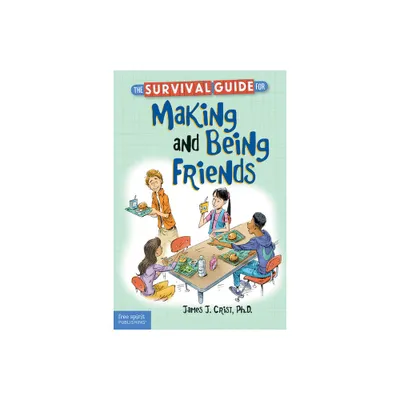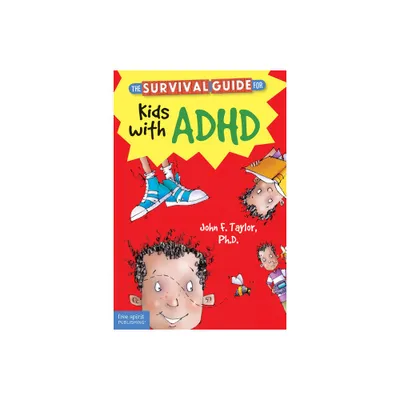Home
The Super-Helper Syndrome: A Survival Guide for Compassionate People
Loading Inventory...
Barnes and Noble
The Super-Helper Syndrome: A Survival Guide for Compassionate People
Current price: $29.99


Barnes and Noble
The Super-Helper Syndrome: A Survival Guide for Compassionate People
Current price: $29.99
Loading Inventory...
Size: Hardcover
*Product Information may vary - to confirm product availability, pricing, and additional information please contact Barnes and Noble
Do you ever find yourself helping others even when you are exhausted and have nothing left to give? Do you put others’ needs before your own? Or do you know someone who fits that description? Then this book is for you.
I was hooked right from the authors' note; there was such beautiful humanity to it. This book is a powerful catalyst in showing helpers how to help themselves. I loved the prompts bringing deep insight, expertly yet tenderly unpicking the core beliefs that keep us stuck in unhealthy helping habits, followed up with the practical tools to actually do things differently. This book is a game changer"
Suzy Reading, author of
The Self-Care Revolution
There’s a type of person out there who is better at helping others than they are at looking after themselves. Maybe you’re one of them. Maybe you know someone who is.
They are the backbone of the caring professions, giving strength to our schools, clinics, care homes and hospitals. But you will also find them in offices, gyms, community groups and charities – everywhere you look. There’s usually one in every family.
But these people, who do so much to help others, are struggling. In their efforts to help wherever they can they typically overstretch themselves. Some face traumatic and distressing situations. Those in long-term caring relationships have no time to care for themselves. Those who are professional carers work prolonged hours with inadequate resources.
Deeper down, beneath all of this, there is something else that causes helpers to suffer. It lurks unnoticed. It dwells in the psychology of the helper.
Where people feel compelled to help others and don’t look after their own needs, that’s the Super-Helper Syndrome. Until recently this phenomenon has gone unnoticed and unnamed, but it has now been highlighted by chartered psychologists Jess Baker and Rod Vincent.
The Super-Helper Syndrome
offers a new perspective on the psychology of helping. It sets out how helping works and why it sometimes goes wrong. It brings to life psychological and neuroscientific research to explain the roots of compassion and empathy. It goes deep into the belief system of helpers and reveals what really motivates them. It illustrates all this with excerpts from a broad spectrum of interviews with paid and unpaid helpers, from ICU nurses to lawyers, volunteers to live-in carers.
The book provides activities for the reader to profile and analyze their own helping relationships. It offers support for people who want to adopt a Healthy Helper Mindset, including meeting their own needs, building assertiveness and setting helping boundaries. It guides the reader towards countering the inner critic with mindful self-compassion. It’s only by doing these things that compassionate people can be most effective at helping others.
This book is for anyone who helps to the detriment of their own wellbeing. It’s for anyone who wants to support the helpers in their life: colleagues, employees, family members or friends. And it’s for anyone who wants to understand how helping works and to be better at it.
It has been written because it’s vital to improve the lives of those who improve the lives of others.
I was hooked right from the authors' note; there was such beautiful humanity to it. This book is a powerful catalyst in showing helpers how to help themselves. I loved the prompts bringing deep insight, expertly yet tenderly unpicking the core beliefs that keep us stuck in unhealthy helping habits, followed up with the practical tools to actually do things differently. This book is a game changer"
Suzy Reading, author of
The Self-Care Revolution
There’s a type of person out there who is better at helping others than they are at looking after themselves. Maybe you’re one of them. Maybe you know someone who is.
They are the backbone of the caring professions, giving strength to our schools, clinics, care homes and hospitals. But you will also find them in offices, gyms, community groups and charities – everywhere you look. There’s usually one in every family.
But these people, who do so much to help others, are struggling. In their efforts to help wherever they can they typically overstretch themselves. Some face traumatic and distressing situations. Those in long-term caring relationships have no time to care for themselves. Those who are professional carers work prolonged hours with inadequate resources.
Deeper down, beneath all of this, there is something else that causes helpers to suffer. It lurks unnoticed. It dwells in the psychology of the helper.
Where people feel compelled to help others and don’t look after their own needs, that’s the Super-Helper Syndrome. Until recently this phenomenon has gone unnoticed and unnamed, but it has now been highlighted by chartered psychologists Jess Baker and Rod Vincent.
The Super-Helper Syndrome
offers a new perspective on the psychology of helping. It sets out how helping works and why it sometimes goes wrong. It brings to life psychological and neuroscientific research to explain the roots of compassion and empathy. It goes deep into the belief system of helpers and reveals what really motivates them. It illustrates all this with excerpts from a broad spectrum of interviews with paid and unpaid helpers, from ICU nurses to lawyers, volunteers to live-in carers.
The book provides activities for the reader to profile and analyze their own helping relationships. It offers support for people who want to adopt a Healthy Helper Mindset, including meeting their own needs, building assertiveness and setting helping boundaries. It guides the reader towards countering the inner critic with mindful self-compassion. It’s only by doing these things that compassionate people can be most effective at helping others.
This book is for anyone who helps to the detriment of their own wellbeing. It’s for anyone who wants to support the helpers in their life: colleagues, employees, family members or friends. And it’s for anyone who wants to understand how helping works and to be better at it.
It has been written because it’s vital to improve the lives of those who improve the lives of others.


















